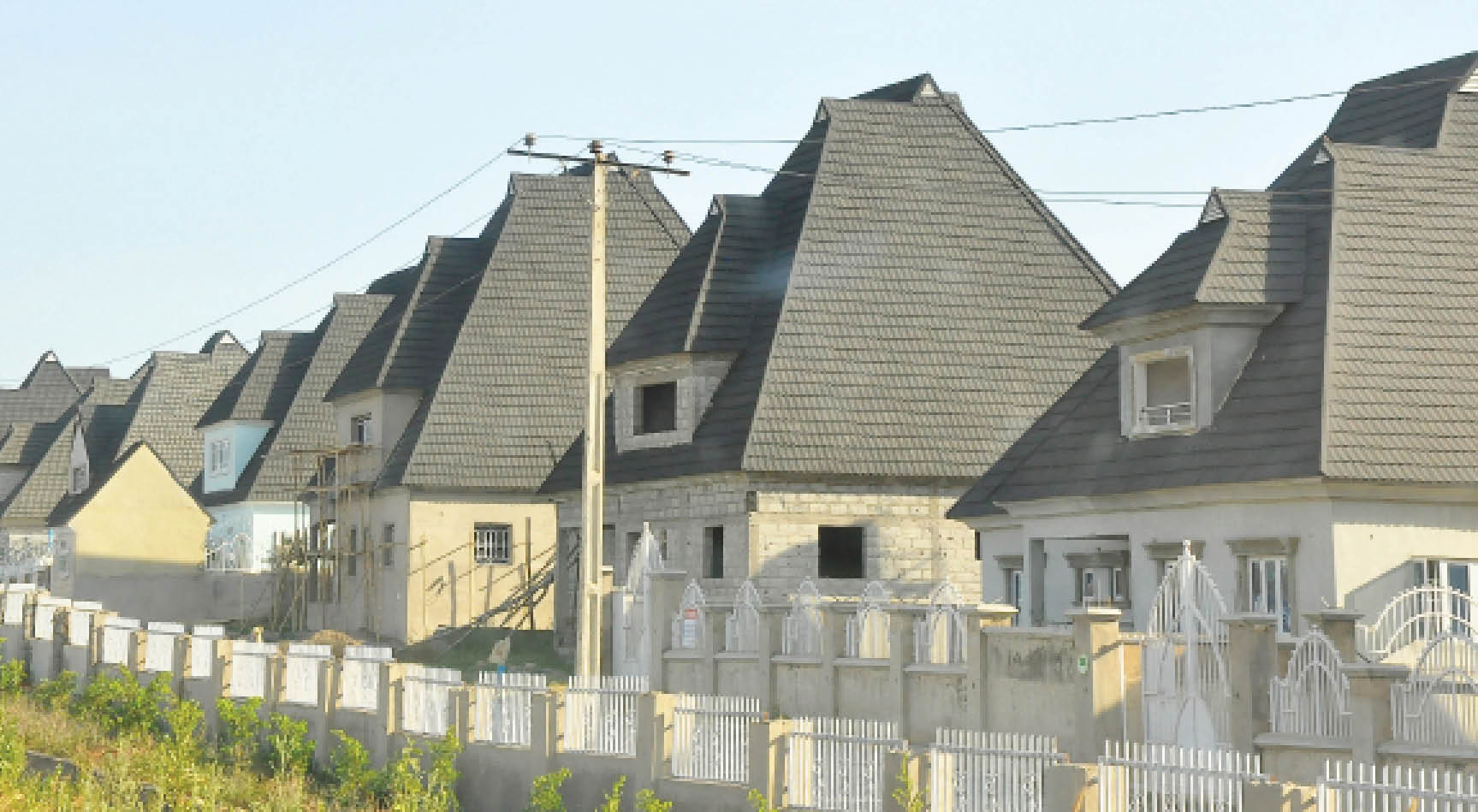Stakeholders outline post-COVID-19 housing plans
Stakeholders have drawn up plans to restructure the housing sector, especially targeting the post-COVID-19 pandemic. The new virus has wrecked world economies and affected every other sector of human endeavour. The Housing Development Advocacy Network has held a webinar in a bid to examine trends and reshape the housing sector in Nigeria after the coronavirus […]

FILE PHOTO
Stakeholders have drawn up plans to restructure the housing sector, especially targeting the post-COVID-19 pandemic. The new virus has wrecked world economies and affected every other sector of human endeavour.
The Housing Development Advocacy Network has held a webinar in a bid to examine trends and reshape the housing sector in Nigeria after the coronavirus era.
Themed ‘The Crisis in Perspective: Affordable Housing Post COVID-19’, the webinar was held as a virtual video conference, with contributions from 350 stakeholders and players in the housing sector.
A statement signed by HDAN Director, Barrister Festus Adebayo, said the housing sector is set to witness a drastic change after the coronavirus pandemic era, adding that it has become imperative to critically examine and predict possible trends with a view to making viable resolutions, hence the webinar.
While speaking as a panellist, a former Managing Director of the Nigerian Mortgage Refinance Company (NMRC), Professor Charles Iyangete, said there was the need to establish a National Housing Commission that could bring all players in the housing sector together with an intent to defining roles and scope of operation for better efficiency of operations, while also proposing a post-COVID-19 pandemic rehabilitation and reconstruction bond.
“We need radical, bold steps to deal with the new world of COVID-19. We are at war and a post-war solution is what is required. Funding is critical to fighting that battle in order to win the war. I have in the past proposed a housing commission to serve a coordinating role, and evolving the policies, the economic model for housing and monitoring and evaluating housing sector performance,” he said.
The Managing Director and Chief Executive Officer of Family Homes Funds Limited, Femi Adewole, while contributing, called for a review of obsolete housing policies to better fit the current reality as there is a chance for greater prospect in the nearest future.
According to him, the housing and construction sector has the largest potential for employment after agriculture and that there is need to refocus it for optimal results.
“Beyond agriculture, there is no better economic sector that can create jobs as fast as housing construction sector and we estimate that for every unit of housing that is produced, you can create between four to six jobs. So if we have a project of 300,000 homes in Nigeria, spread across all the 36 states that will over a five-year period bring 10 million people into employment. This is possible. We also need to revisit some of our housing policies that are over 30 years old. It is time for rethinking.” he said.
The founder of Eximia Realty, Hakeem Ogunniran, who also contributed to the webinar, said for the narrative of housing in Nigeria to change, it is important to commoditise housing and create a legal framework that facilitates buying and selling of houses at ease.
He added that the industry must of necessity move away from the era of building houses to the era of manufacturing them.
On his part, the President of Real Estate Developers Association of Nigeria (REDAN), Alhaji Aliyu Wamakko, said housing should be prioritised by government at all levels and also the private sector and urged government to play its role of creating an enabling environment for real estate developers.
A Professor of Housing at the University of Lagos, Timothy Nubi, in his contribution, stated that most of the solutions to housing in the past were focused on the working class.
“But in the present lockdown experience, a vast majority of people living in slums in Lagos and other places could not be locked down as they do not have access to decent housing making the post-COVID-19 a tougher challenge,” Nubi was quoted as saying.
